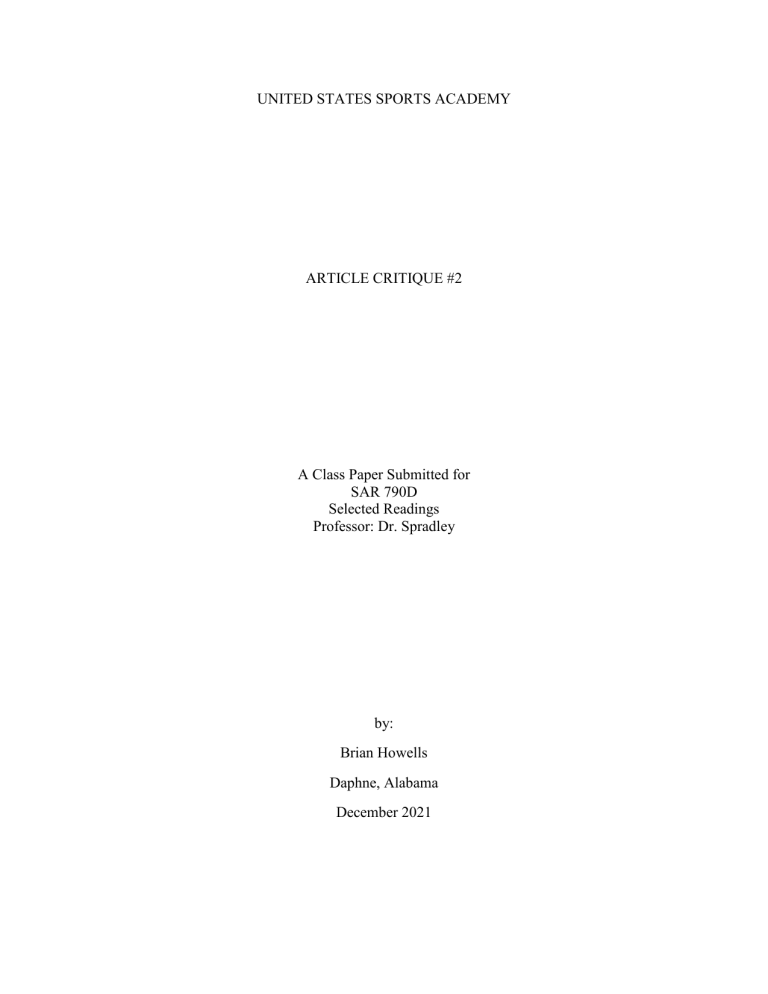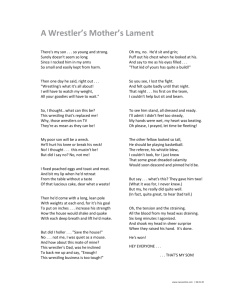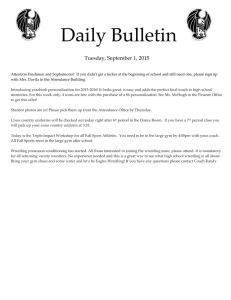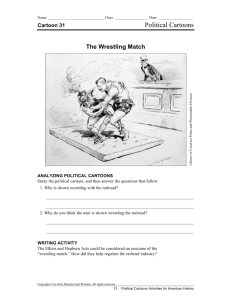
UNITED STATES SPORTS ACADEMY ARTICLE CRITIQUE #2 A Class Paper Submitted for SAR 790D Selected Readings Professor: Dr. Spradley by: Brian Howells Daphne, Alabama December 2021 Destani, F., Hannon, J. C., Podlog, L., & Brusseau, T. A. (2014). Promoting Character Development through Teaching Wrestling in Physical Education. JOPERD: The Journal of Physical Education, Recreation & Dance, 85(5), 23–29. EBSCOhost. The research by Destani, Hannon, Podlog, and Brusseau combines the aspects of wrestling into a lesson plan that could be used for a physical education class. The lesson plan includes various aspects such as Counseling time, Awareness Talk, Warm Up, Instruction, Practice and Activities and finally Group Meeting and Reflection Time. The authors suggest that character development can be achieved through wrestling using the TPSR Model with a “Pin it to Win it” leveling system. Instead of students being awarded points for winning in wrestling they are instead awarded points through active participation and following the rules of the sport correctly. Level 0 is a disqualification for not obeying the safety rules or teacher instructions, Level 1 is showing self-control and respect for others, Level 2 is active participation and accepting challenges, Level 3 is exhibits respect and on task independence and Level 4 is leadership roles in class. The statement of the problem for this study was Physical education and wrestling can be an interactive environment that has the potential to engage students personally and socially in character-development promoting activities. The article explains, despite the promotion of the affective learning domain in physical education, moral development or character development has been largely ignored by physical educators either because of the belief that it should be taught at home or because there is such a diversity of cultures that it is unclear whose values should be taught. Also, many researchers feel that the affective-learning domain outcomes cannot be measured, and, until recently, there have been no instructional models focusing on or promoting the affective learning domain (Metzler, 2012). The authors attempted through their statement of the problem to conclude through their research that affective-learning domain outcomes can be measured when given a lesson such as wrestling and the Leveling model to grade a physical education class on character development. The significance of the study is that one of the main assurances that wrestling coaches and stakeholders hold in high regard is that wrestling creates champions of character. So, a study being done to gauge a student’s character is an important study for the wrestling community to use to help promote the sport. The methodology of the study includes instructor-student interaction to help move students from one level to the next. The authors discuss reinforcement strategies geared towards helping those students who are not responsible in following the rules. The Hellison TPSR Model leveling system is the main methodology used in the study. The findings show that in recent years, wrestling has increased in popularity for all races, genders and sizes (weight classes) and provides physical educators the opportunity to teach character development due to the unique moral-development experiences inherent to the sport. The authors did not include actual data of where they used this system so one is unaware if this is an accurate positive outcome for creating character development with no studies being actually shared in the journal article. They did provide a lesson plan that is helpful for any teacher to use if they chose to incorporate a wrestling unit into their yearly lessons. This article relates to my topic of interest as I am in the beginning stages of determining my dissertation topic. My topic options include wrestling, football, coaching and adaptive physical education. This article combines physical education and wrestling together as two of my interests exist.




